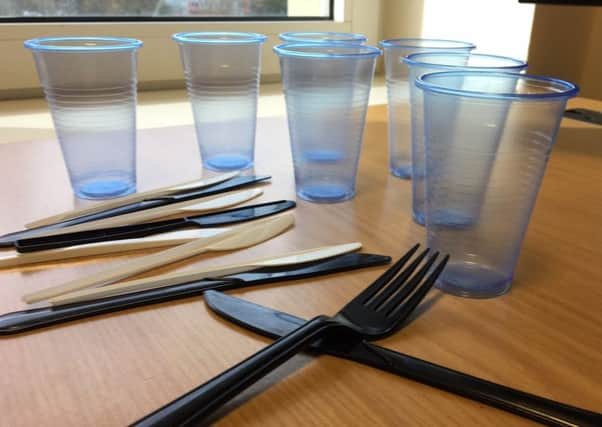NHS in Yorkshire bought more than 67m disposable cups over five years


Based on the latest population estimates, this works out as more than one coffee cup for every person currently living in England.
Across the country the NHS purchased more than 600m disposable cups - or 11 per person in England, data obtained through freedom of information requests by the Press Association showed.
Advertisement
Hide AdAdvertisement
Hide AdIt comes amid increasing alarm over the environmental impact of throwaway items and significant Government moves to crack down on single use plastics.
The worst offender among 21 trusts in the Yorkshire and Humber region was Sheffield Teaching Hospitals NHS Foundation Trust, which purchased more than 19.8m cups since 2013.
Leeds Teaching Hospitals NHS Trust bought more than 12.7m.
They were among the 14 NHS providers around the country which purchased more than 10m cups over the last five years.
Commons Environmental Audit Committee chair and Labour MP for Wakefield Mary Creagh told The Yorkshire Post: “The NHS has a significant carbon footprint and has taken steps to reduce it in many areas. It now needs to look at its use of single use cups and work with manufacturers to develop sustainable alternatives.”
Advertisement
Hide AdAdvertisement
Hide AdConservative former minister and Scarborough and Whitby MP Robert Goodwill said the data highlighted the scale of the problem and urged NHS providers to come up with alternative that could also help them save money, while stressing few of the cups would end up in the ocean as the health service deals with its waste “very well”.
Mr Goodwill, who also sits on the Environmental Audit Committee, said: “I think everybody whether it be public sector, private sector or individuals needs to think and work how we can be as successful with disposable cups as we have been with supermarket plastic bags.”
Plastic, foam and paper cups are used across the NHS from waiting rooms to wards, for drinks and medicines.
While some can be readily recycled others are considerably harder to recycle - such as plastic-lined coffee cups or polystyrene.
Advertisement
Hide AdAdvertisement
Hide AdThere are sometimes clinical reasons behind using disposable cups - such as avoiding using glass in some mental health wards.
Earlier this year England’s chief medical officer, Professor Dame Sally Davies, said the NHS - one of the world’s largest employers - was a “significant polluter” and should cut its impact.
Greenpeace UK senior oceans campaigner Louise Edge said: “These huge figures demonstrate just how out of control our relationship with single-use plastic has become.
“In the last five years the health service has used half a billion disposable cups - they can’t all be captured and recycled, so it’s time for the Government to step in and help suppliers find solutions.”
Advertisement
Hide AdAdvertisement
Hide AdKevin O’Regan, director of hotel services at Sheffield Teaching Hospitals NHS Foundation Trust said: “We are one of the largest NHS Trusts treating over two million patients every year across five hospitals and employing 17,500 staff which means we inevitably will have a higher number of cups than smaller hospitals.
“Despite this we have reduced by almost 42% the number of disposable cups we purchase and we are committed to reducing this even further and promoting more sustainable alternatives wherever clinically and practically appropriate.”
Craige Richardson, director of estates and facilities at the Leeds trust said it “is one of the largest acute hospital trusts in the country and treats 1.5m patients every year”.
“This is reflected in the figures for the number of disposable cups the trust purchases each year,” he said.
Advertisement
Hide AdAdvertisement
Hide Ad“The majority of these cups are used in clinical areas where there is a need for single use cups from an infection control point of view, and they are not used in non-patient facing areas.
“The trust has implemented dry mix recycling across all seven of its hospitals, enabling disposable cups to be recycled as well as plastic, cans, card and paper. Paper and compostable cups are currently being reviewed to see if they can be rolled out into clinical areas. There are also coffee cup recycling points in the canteen areas of our hospitals to further promote this.”